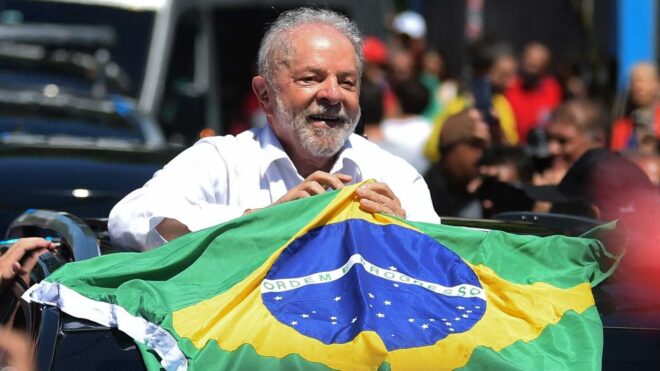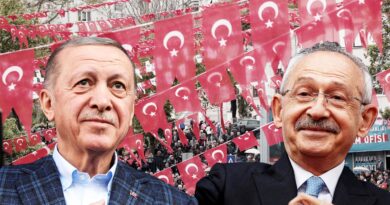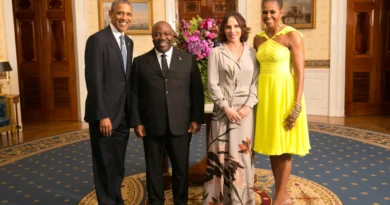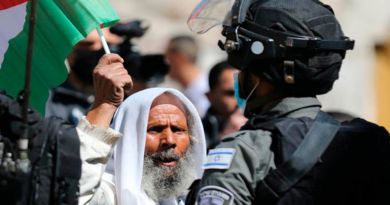Lula defeats Bolsonaro in the most disputed elections
JUAN MIGUEL MUNOZ
São Paulo
The unwritten rule was fulfilled: whoever wins in the first round of the Brazilian elections becomes president in the second. Twelve years after leaving Planalto, and after his time in prison after a judicial process riddled with irregularities, Luiz Inácio Lula da Silva will return to the presidential palace on January 1. Three minutes before eight o'clock at night, Lula was officially declared president-elect. But it was necessary to count 99% of the votes to put an end to the elections. The charismatic former trade unionist won almost 51% of the vote, compared to just over 49% for his opponent, Jair Bolsonaro: the closest presidential victory in Brazil since the restoration of democracy in 1988. The north turned with Lula, as is traditional; the south and some states of the Amazon basin supported the far-right in the majority.
In his first appearance once elected, in a hotel in the center of São Paulo, and surrounded by leaders and historical and elected officials of his party, Lula called for the unity of Brazilians. The first words were dedicated to the candidate who was defeated in the first round, Simone Tebet, who supported Lula in the second round. Based on the tight result, Tebet's support has been decisive. After criticizing Bolsonaro for having used the state apparatus in the electoral campaign, Lula said that the victory is a victory for the democratic movement so that "democracy would emerge victorious."
He then spoke of the importance of promoting education, health, culture, economic growth and job creation. “I am going to govern for the 215 million Brazilians… Nobody is interested in living in a divided country in a permanent state of war… It is time to put down our weapons, which should never have been wielded… It is necessary to rebuild the soul of this country… The The green and yellow of the flag do not belong to anyone…”, affirmed Lula, who added that the fight against hunger will be the first commitment of his Government.
He stressed that he will strengthen social programs and stressed that "no one, no one will be above the law." Likewise, he pointed out that Brazil must stop being the pariah that it is now in the world and link this situation with the deficient environmental protection of the outgoing government. And he added that he will fight to put an end to the deforestation of the Amazon and that he will protect the indigenous populations.
The victory of Lula, who has promised that he will not stand for re-election, demonstrates the enormous popularity of the leader of the Workers' Party (PT), capable of overcoming the burden of disrepute on his party. The results also reflect that the society of the immense Latin American country suffers from a deep division. Jair Bolsonaro was a tough rival. He managed to reduce the difference in votes between the first and second rounds from six million to two million. And, although he was defeated, his enormous harvest of votes demonstrates the vigor of the conservative and deeply religious sectors of Brazil, which have leaned far to the right.
Minutes before the polling stations closed, at five in the afternoon, the cries that the residents of a central São Paulo neighborhood have launched in recent days were still heard: “Bolsonaro out” and “Lula Thief.” Shortly after, Bolsonaro began the count with a four-point lead. Undoubtedly because a good part of the votes counted in those first moments came from states that favored the extreme right-wing president in the first round. But as the scrutiny progressed, Lula did not stop gaining ground. With 67,76% of the votes counted, the candidate of the left went on to have 50,01% of the votes and Lula's supporters no longer repressed their joy. The faces of the Globo network presenters and analysts also changed, and they began to smile more. The powerful television network, which no longer has the influence of yesteryear, has been harsh with Bolsonaro.
The campaign – bitter, full of insults and outright lies on social networks, and superficial in terms of its content – gave way to a heart-stopping election day. In the days before the appointment with the polls, the uncertainty was enormous. And the supporters of the chosen candidate did not have it all with them. Bolsonaro has fought to the end. And it is likely – and so many leaders and pundits fear – that the outgoing president and his supporters will not accept the outcome. Yes, he did, in a conciliatory speech after learning the results, Arthur Lira, president of the Chamber of Deputies, who emphasized the need to avoid revenge.
The president of the Superior Electoral Court, Alexandre de Moraes, had to intervene in favor of electoral cleansing. The director of the Federal Highway Police, Silvinei Vasques, declared a Bolsonarista, was summoned by Moraes due to complaints that the police were hindering access to polling stations for many voters. But that happened in the vast majority of cases in the states of the Northeast, precisely Lula's electoral stronghold, the states in which the Workers' Party candidate obtained 67% of the vote in the first round.
The president-elect faces a complicated scenario with little room for manoeuvre. 33 million of the 215 million that inhabit Brazil go hungry or have to skip one of the meals of the day. With 10 million unemployed, and with a difficult situation also due to the international economic situation, experts predict that economic growth – 4,6% in 2021 and -3,9% in 2020– will not be robust until at least 2024 in the Best of cases. Inflation, now at 9%, will not drop below 5% next year. This inflation does not favor consumption becoming the engine of growth. Neither Lula nor Bolsonaro offered formulas during the campaign to promote a powerful boost to the economy. In these circumstances, both promised that the Brazil Aid - the aid of about 120 euros granted to almost 21 million Brazilians - will remain in force. Neither candidate explained the budget juggling necessary to maintain that aid.
Regardless of the macroeconomic data, the deficit of the Brazilian public health system is unsustainable in the medium term. And the shortcomings of the public education system – always very poor – worsened during the pandemic. Brazil was one of the first countries in the world to close schools during the pandemic and one of the last to reopen them. Without a fiscal (and administrative) reform it is impossible to reconcile in the medium term the health of public finances and the improvement of health and education.
There are more obstacles for Lula. Tarcisio de Freitas, the Bolsonarista candidate, won in the State of São Paulo, the country's economic engine and the most populated state (22% of the population). But, in addition, Minas Gerais and Rio de Janeiro will also have Bolsonarist governors: the three most important states in the country, in the hands of the opposition to the federal government. As if that were not enough, Lula will have to deal with the Congress and the Senate. In the Congress of 513 deputies, the parties of the so-called Centrão are always hard to crack, although in the end they tend to ally themselves with the president. In reality, they are the representatives of the caciques and regional interests. Everything is negotiable. But a not insignificant percentage are representatives of the so-called Bala, Bible and Ox groups, that is, supporters of agricultural interests, religious sectors – especially evangelicals – and defenders of the liberalization of arms sales. . All three are deeply conservative groups. Reconciling the interests of the agricultural sector, which accounts for 27% of Brazilian GDP, with environmental conservation will be a challenge for the president-elect.
Few draft changes are predicted. One of them is that Lula will stop the privatization program undertaken by the Bolsonaro government in the last four years. The president-elect has assured that neither Petrobras, the jewel in the crown, nor the public banks will be privatized.
More certain is a turn in Brazil's foreign policy. Bolsonaro has not stopped attacking all the leftist governments of the continent, apart from his confrontations with China, the country's main trading partner. Foreign policy has been marked by a clear ideological bias and Brazil's image has also been damaged by the terrible image that the management of the Amazon basin has produced.
Juan Miguel Munoz is a journalist. He lives in Brazil and was a correspondent in Jerusalem













